2017 Suzuki GSX-R1000R First Ride Review

Highlights
- GSX-R1000 and top-spec GSX-R1000 share same engine, chassis and bodywork
- Suzuki GSX-R1000R gets better suspension, cornering ABS, quickshifter
- The 2017 Suzuki GSX-R1000 is a completely all-new model
Rocketing down the straight at Kari Motor Speedway in Coimbatore, I have just about enough time to take a quick glance at the speedo, before it's time to slam on the brakes, downshift three cogs and smoothly open the throttle, as we take the sharp right-hander on the first corner. The Brembo monobloc calipers grip the 320 mm twin discs, the ABS ensures there's no drama, and the Suzuki GSX-R1000R I am astride, quickly sheds speed from over 210 kmph.
As I cautiously open the throttle on the first corner, I notice an amber light flashing on the top right corner of the instrument panel. It's the traction control indicator; the 10-level motion track traction control is dialed way up, so at the slightest turn, the smallest throttle input, the electronics kick in to rein in over 200 bhp of power and 117.6 Nm of torque from the 999 cc in-line four engine. Just as well, I thought, dipping the 203 kg bike onto the series of corners up ahead.
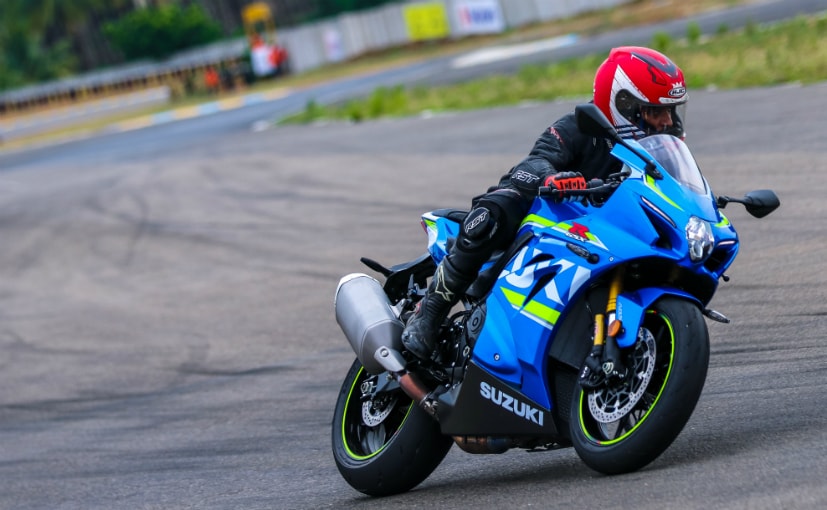
The GSX-R1000R gets motion track traction control, cornering ABS, six-axis IMU
The surface of the Kari track is uneven in sections, and there is even loose gravel as well, so we have to be extra cautious, but there's no drama whatsoever. The inertial measurement unit calculates the dynamics of the bike along six different axes, and accordingly adjusts the power, traction and even the ABS. I downshift to second and open the gas wide open as we hit the beginning of the straight. The in-line four screams out and the digital speedo climbs quickly, before it's time to give the brakes one more workout.
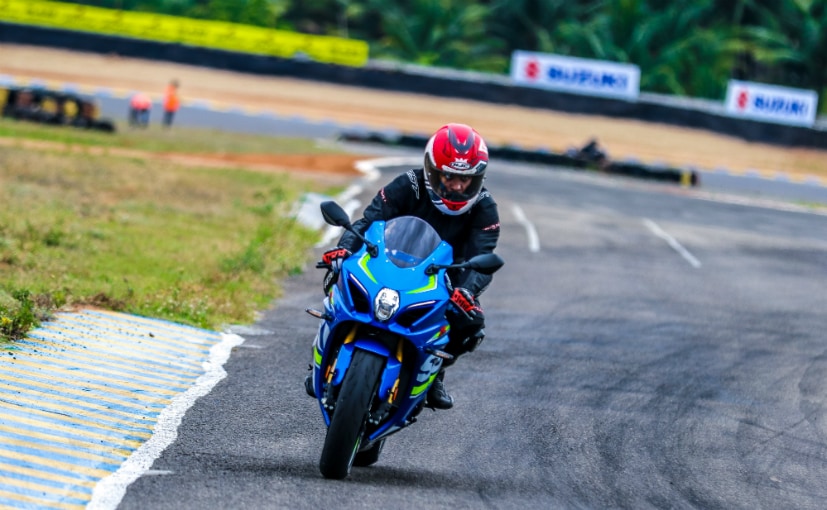
The 999 cc engine offers a broad range of power and will complement street riding as well
The last time the GSX-R1000 got an update was several years ago, but this time, the bike is almost all-new from the ground up. It gets a completely new engine, new chassis, new suspension, new swingarm, and even a sleeker, more aerodynamic body. The bike gets LED headlamps, LED taillamps, and an LED instrument panel as well. There are just three simple riding modes - A, B and C with each mode allowing full power with decreasing levels of aggression. C is recommended for city or wet weather riding. But the riding modes don't allow you to customise individual settings of the electronics.The engine has a broad range of torque and power, thanks to variable valve timing, borrowed from Suzuki's MotoGP bike.
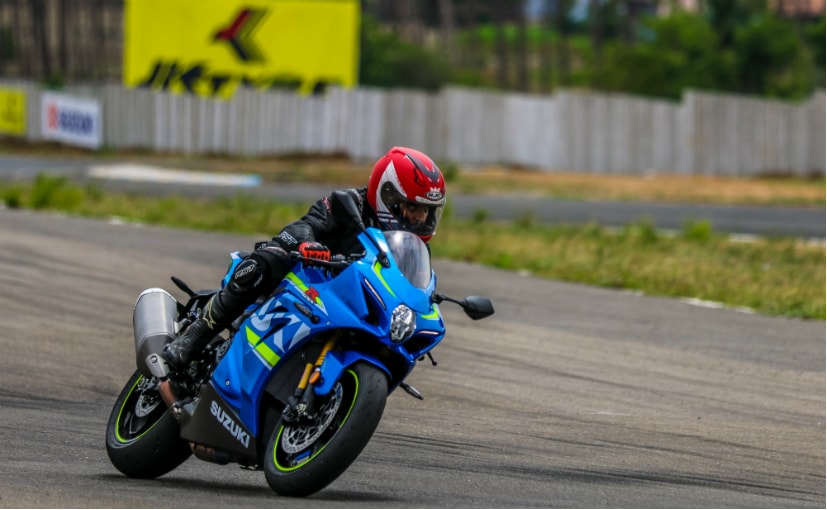
The top-spec GSX-R1000R gets top-spec suspension and more technological wizardry
The afternoon at Kari began with a few laps of the base variant GSX-R1000. It shares the same engine, same chassis, and same bodywork and has Showa Big Piston forks up front. The top-end R variant gets top of the line Showa Balance Free forks and shock, and also gets cornering ABS, bi-directional quickshifter and launch control. Swapping bikes after the first four laps, the difference is immediately apparent. The suspension settings on both bikes have been kept on factory standard setting, but the R feels plush, and easier to handle on the uneven stretches of the track. The quikshifter works like a dream and shifts are smooth and effortless.
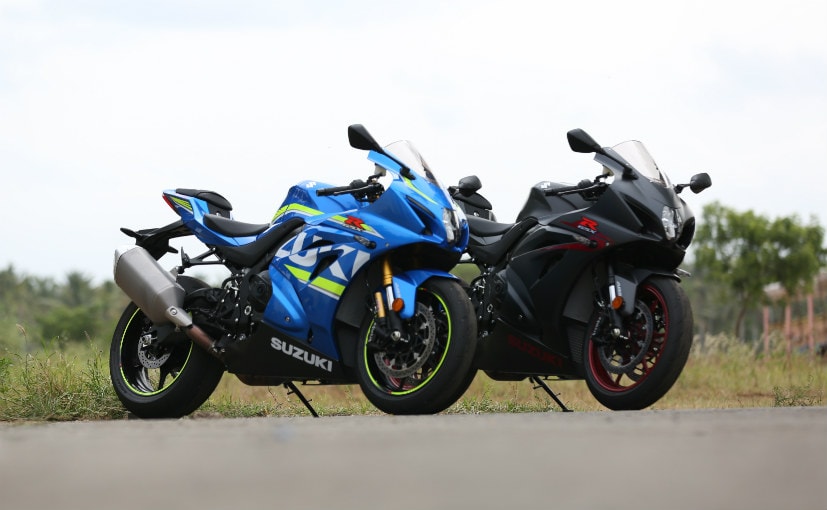
The top-spec Suzuki GSX-R1000R gets more electronic equipment and better suspension
The Suzuki GSX-R1000 and the GSX-R1000R are brought in as completely built units (CBUs) and at Rs. 22 lakh (ex-showroom Delhi) for the top-end variant, it's not for everyone. The base GSX-R1000 costs Rs. 19 lakh (ex-showroom Delhi), but if you're spending that kind of money, I would any day pick the 'R' and it's certainly worth the extra you pay for. Two hundred bhp is a lot of power on a litre-class superbike. But the Suzuki GSX-R1000, more so the GSX-R1000R, makes it seem all too easy to handle that kind of power and performance.
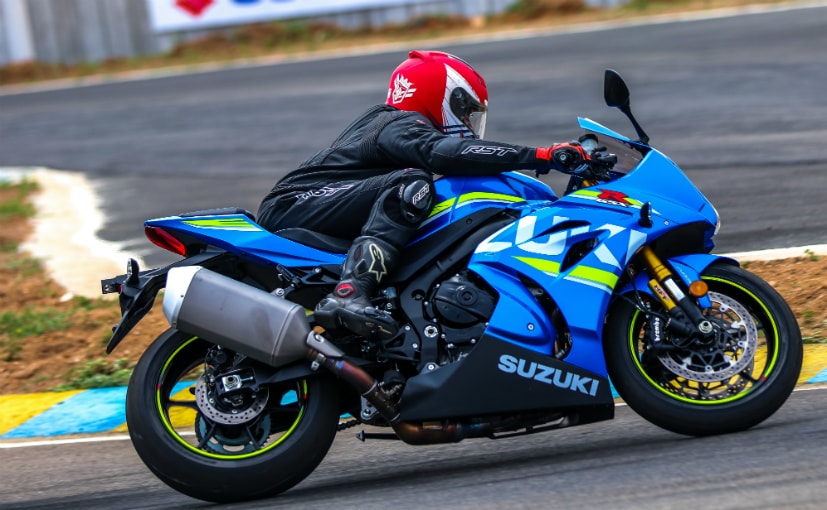
The new Suzuki Gixxer is a proper litre-class superbike with a high level of performance
The Suzuki GSX-R1000 is a proper litre-class sportbike with a level of performance that deserves a higher level of riding skills and experience. Sure, the advanced electronics and broad powerband makes sure things remain in control. And you can use it around town, do the occasional highway jaunt comfortably, and it can double up as a very, very capable track tool for the weekend. The Kari track is technical, more suited to lighter bikes, the surface isn't that great and it's a small track to explore the GSX-R1000R's capability. But more than that, to do justice to the 2017 'Gixxer', you really need to improve your game on a superbike. I certainly think I do.
Photography: Asif Zubairi
Last Updated on September 28, 2017
Latest Reviews
- Home
- Reviews
- Bike Reviews
- 2017 Suzuki GSX-R1000R First Ride Review














